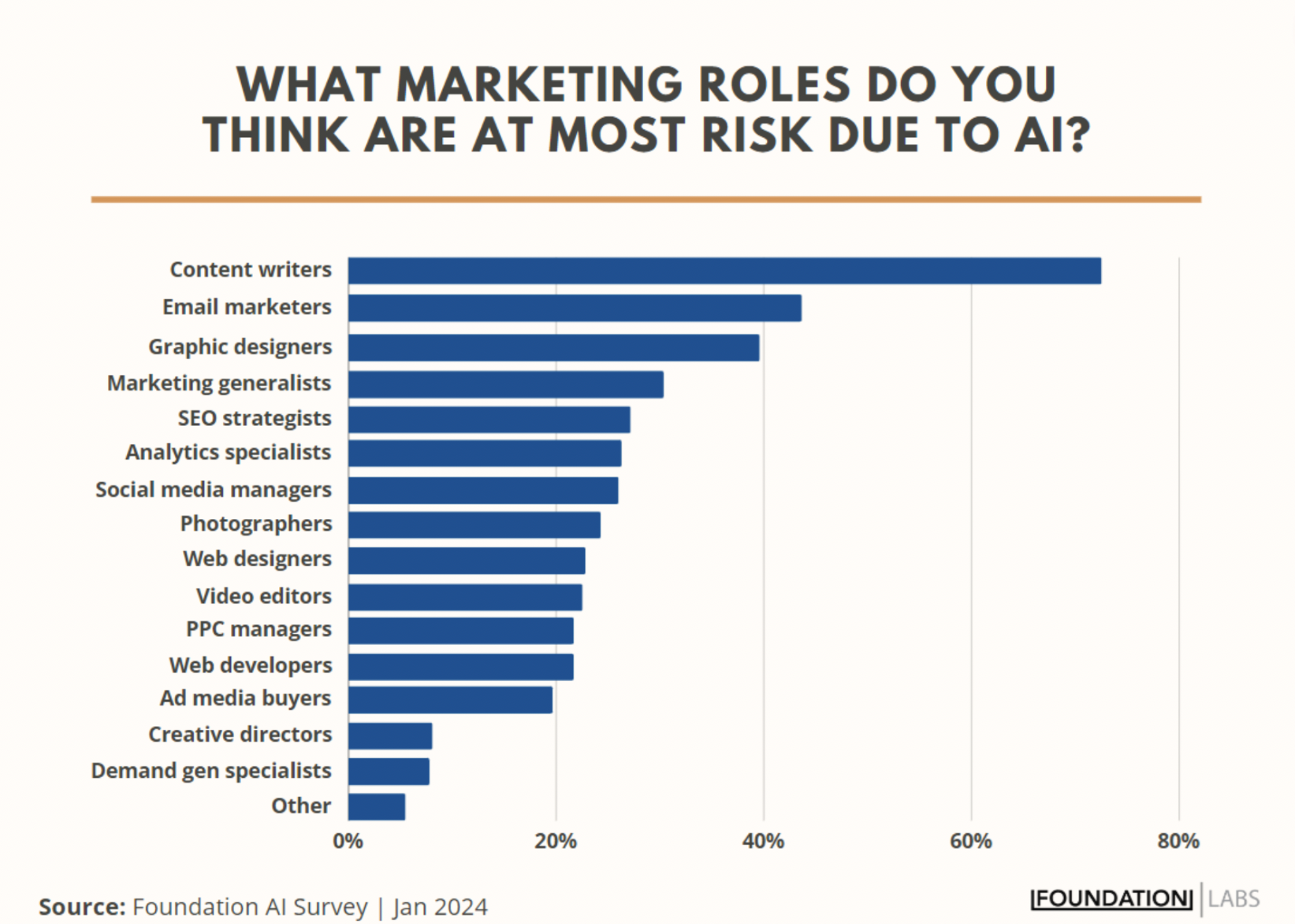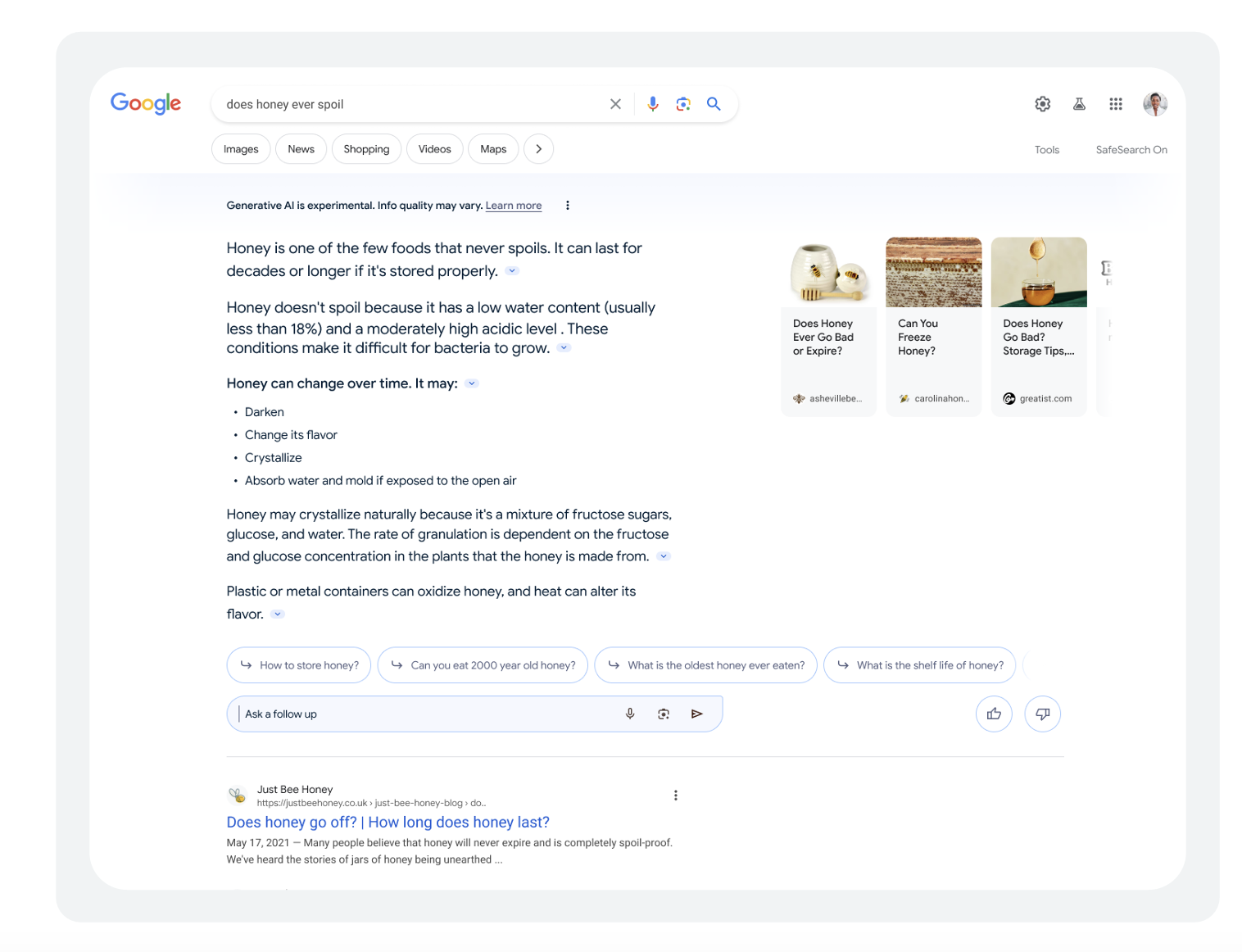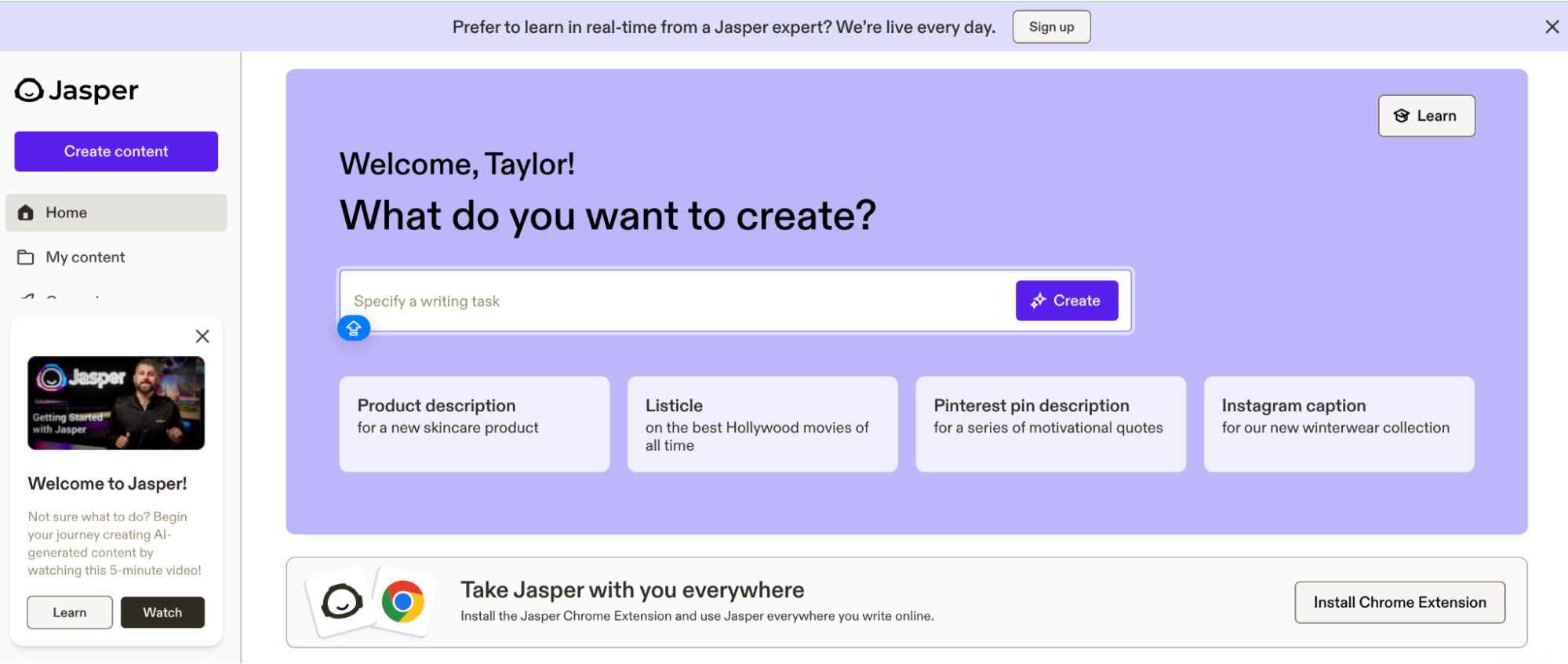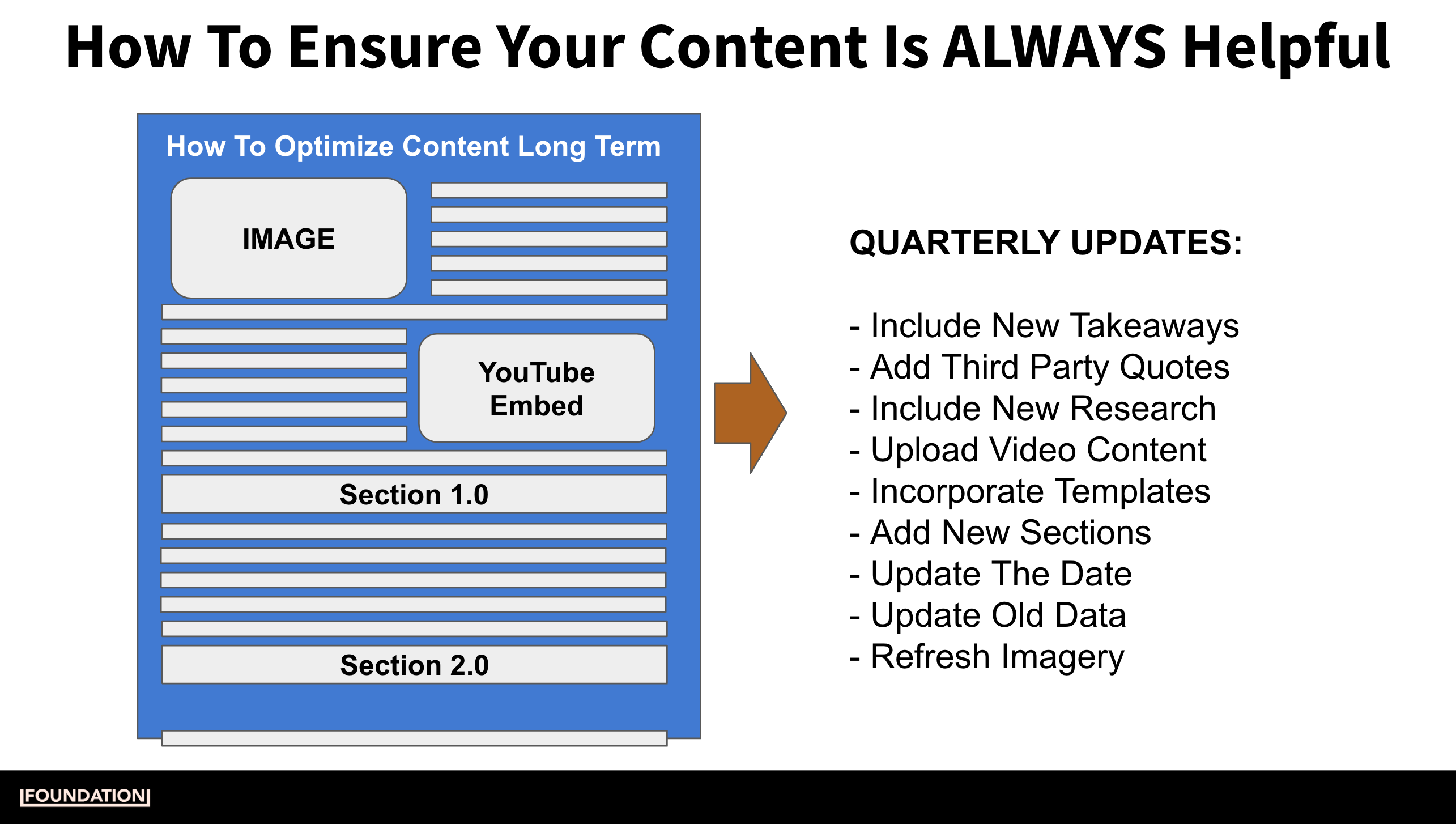Article's Content
Generative AI and Search Engine Optimization (SEO) have intertwined, reshaping content creation and optimization. This convergence is set up to create a revolution in how businesses and marketers shape their online identity, interact with audiences, and ascend the search engine results pages (SERPs). Furthermore, it’s going to change the way consumers navigate the internet to identify stories that are relevant and content that serves their needs.
As a marketer who has supported the growth of some of the most ambitious brands in the world at SEO for 10+ years, I’ve experienced a lot of changes in the industry. Over the last few years, SEOs have had to navigate the rise of featured snippets, shifts in algorithms, new platforms, EEAT best practices and more.
The introduction of Gen AI to the SEO toolkit is a concept that is taking off amongst marketers and sparking the rise of a dialog surrounding not just how AI can be used by SEOs but how the rise of Generative Engine Optimization (GEO) will influence the industry.
This article explores the synergy between these two domains, uncovering how they work together to enhance content strategy, improve search rankings, and ultimately drive more organic traffic to websites.
Understanding Generative AI
What Is Generative AI Technology & Why It Matters?
Generative AI refers to a class of artificial intelligence systems that can create new, original content based on patterns and information they’ve learned from vast datasets. These systems use advanced machine learning techniques, primarily deep learning and neural networks, to understand and mimic human-like content creation.
In a GenAI study called “GPTs are GPTs” conducted by Tyna Eloundou, Sam Manning, Pamela Mishkin from OpenAI, and Daniel Rock from the University of Pennsylvania, it was found that:
- Approximately 80% of the U.S. workforce could have at least 10% of their tasks affected by LLMs.
- About 19% of workers may see at least 50% of their tasks impacted.
- The effects span all wage levels, with higher-income jobs potentially facing greater exposure.
These insights led me down the path of determining the impact of AI on Marketers and how it would impact our roles. The findings were pretty staggering:

The vast majority of marketers believe that content writers are at significant risk.
Nearly 30% of all respondents believed that SEOs are at risk.
At the heart of many generative AI systems are large language models (LLMs) such as GPT (Generative Pre-trained Transformer) series, which have been trained on enormous corpora of text data. These models can generate coherent and contextually relevant text across a wide range of topics and styles.
How Generative AI Works in Content Generation and Optimization
Generative AI has the ability to produce human-like text, images, and even code, has opened up new possibilities for content creation at scale. Meanwhile, SEO continues to be the cornerstone of digital visibility, guiding the creation of content that not only resonates with human readers but also aligns with the complex algorithms of search engines. AI Writing tools like Jasper provide marketers with the ability to produce content at a rate faster than ever before.
But that’s not the only impact to SEOs.
When you go to Google and type in a query, it’s very possible that the results look like this:

This is the search engine results page showed in an example from Google’s SGE launch PDF outlining what the new generative engine experience looks like. As an SEO, the two big impacts that are worth considering as you make your decisions around how you approach AI in the months to come is two-fold:
- How do you use artificial intelligence / Gen AI technology to be more efficient?
- How do you leverage your expertise to extract organizational value even amidst the rise of generative engines?
In a recent piece we published on Generative Engine Optimization, we came across an academic journal that outlined a wide range of Generative Engine Optimization methods that had a strong and weak correlation against what showed up in the LLMs response:

We advise that brands stay up to date with all of Google’s Search Experiments to ensure that they’re staying on top of the impact of GenAI in SEO.
All that said… Let’s get tactical and discuss How GenAI can be utilized by SEO teams:
How Can Gen AI Tools Support SEOs
In the context of content creation and SEO, generative AI operates through several key steps:
1. Input Processing: The AI system takes a prompt or set of instructions as input. This could be a topic, a set of keywords, or a specific content format.
2. Content Generation: Based on the input, the AI generates text that attempts to fulfill the given requirements. This can range from blog posts and product descriptions to meta titles and descriptions.
3. Optimization: Advanced generative AI systems can be fine-tuned to incorporate SEO best practices. They can optimize content for readability, keyword density, and other SEO factors.
4. Iteration and Refinement: Many systems allow for multiple iterations, where human feedback can be incorporated to refine and improve the generated content.
5. Scalability: Generative AI can produce large volumes of unique content quickly, allowing for the creation of comprehensive content strategies that would be time-consuming to implement manually.
Generating SEO-friendly content
Creating SEO-friendly content is a crucial application of generative AI within the realm of SEO strategies. By harnessing the power of generative AI, content creators can streamline their content development process while ensuring that the generated content adheres to the latest SEO best practices and guidelines. This innovative approach not only saves time but also enhances the overall quality and relevance of the content produced, ultimately boosting visibility and organic traffic to websites.
Optimizing & Creating Content With AI

Creating outstanding content with generative AI, while prioritizing SEO, demands a delicate fusion of creativity and optimization. By leveraging AI models, you can craft content that not only incorporates relevant keywords and optimizes meta tags but also maintains a reader-friendly tone and structure.
Nevertheless, it’s imperative to move beyond mere optimization and ensure the content remains captivating, enlightening, and tailored to the target audience. This is where human expertise shines, infusing a personal touch, offering unique insights, and weaving authentic storytelling into the narrative.
We’ve developed a guide to using Jasper for SEO content and recommend you check it out.
Using AI to target specific keywords

Generative AI, a cutting-edge technology, plays a pivotal role in content creation by customizing material to specific keywords. Innovative tools like Frase not only aid in crafting engaging content but also ensures optimization for targeted keywords, resulting in highly effective and impactful outputs.
Ensuring the ongoing relevance and currency of content.
Search engines place a high value on fresh and relevant content, which is where generative AI can play a key role. By leveraging generative AI, content creators can meet the demand for updated material while also enhancing the longevity and relevance of evergreen content through insightful suggestions and refinements. This symbiotic relationship between AI and content creation ensures that websites remain engaging and competitive.
Incorporating SEO best practices into existing content

Generative AI can incorporate SEO-friendly elements into a brands existing content. Plugins exist today that allow you to make edits directly in the CMS.
This involves optimizing meta tags, headers, and subheadings with relevant keywords, ensuring correct use of internal and external links, and structuring the content for readability. Automating these tasks saves time and effort for content creators, while enhancing the content for improved outcomes.
The Importance of An SEO Strategy
An SEO strategy still remains a critical component of digital marketing, serving as the bridge between your content and your target audience.
It encompasses a set of practices designed to increase the quantity and quality of traffic to your website through organic search engine results. While there are various factors that contribute to an effective SEO strategy, it ultimately boils down to one thing: content. As much as many marketers will tell you that AI can develop your strategy – I’m here to say that’s a fast track to poor results and mediocre content.
In a world where AI is everywhere, the best investment you can make is to develop a strategy that is so informed and valuable that an AI couldn’t replicate it.
This only comes from a combination of industry experience, deep research and a solid understanding of content. And with constantly evolving search algorithms and increasing competition for online visibility, having a solid content strategy has never been more important. And yes…
GenerativeAI can still be a part of the mix…
But not leading the way.
Generative AI technology utilizes advanced algorithms and machine learning models to predict natural language. By leveraging this technology, businesses can save time and resources and a strong strategy will incorporate GenAI best practices within it. But at the core of a strong SEO strategy developed today has to be the focus on EEAT (Experience, Expertise, Authority and Trustworthiness). Here’s a few things brands can do when building their SEO strategy to achieve this:
- Demonstrate Experience:
- Content Creators: Ensure your content is written or reviewed by individuals with firsthand experience in the topic. This could include sharing personal stories, case studies, and using original images or videos.
- Detailed Bios: Create detailed author bios highlighting their experience and expertise. Include their background, credentials, and achievements to establish credibility.
- Showcase Expertise:
- High-Quality Content: Produce well-researched, in-depth content that provides value to your audience. Use credible sources and provide detailed information to showcase your expertise
- Professional Review: For technical or specialized content (like medical or financial advice), have it reviewed by qualified professionals to ensure accuracy and credibility.
- Build Authoritativeness:
- Backlinks: Focus on acquiring backlinks from authoritative and relevant websites. This can be achieved through guest posting, collaborating with industry influencers, and ensuring high-quality content that others want to reference
- Press and Media Features: Get your brand and content featured in reputable media outlets. This not only builds authority but also provides valuable backlinks
- Establish Trustworthiness:
- Transparency: Be transparent about your business practices, affiliations, and any potential conflicts of interest. Clearly state your privacy policy, terms and conditions, and contact information on your website
- User Reviews and Testimonials: Encourage and showcase genuine user reviews and testimonials. Positive feedback from real users significantly boosts trust
- Secure Website: Ensure your website uses HTTPS to secure user data, which enhances trustworthiness in the eyes of both users and search engines
- Regularly Update Content:
- Content Refresh: Regularly review and update your content to keep it current and relevant. Indicate the date of the latest update to show that the information is up-to-date
EEAT stands for Experience, Expertise, Authoritativeness, and Trustworthiness. It is a critical factor that Google uses to evaluate the quality of content on the web. For brands aiming to rank higher in Google search results, emphasizing EEAT in their digital presence is not just important—it’s essential.

Incorporating EEAT into your brand’s strategy involves more than just delivering high-quality content; it means creating an entire ecosystem around your digital presence that reflects deep experience and expertise in your field. Brands must work to establish themselves as authoritative sources of information. This can be achieved by consistently producing insightful content that addresses the needs and questions of their audience, backed by thorough research and data.
Trustworthiness is another pillar of EEAT that cannot be overlooked. In today’s digital age, where privacy concerns are at the forefront of users’ minds, ensuring that your website is secure and transparent about its practices can significantly impact your brand’s perception. This includes having a clear privacy policy, showcasing real user testimonials, and using HTTPS to protect user data.
Google’s emphasis on EEAT underscores the importance of providing value through every piece of content you produce. By focusing on these elements, brands can improve their visibility on search engines, foster trust with their audience, and ultimately drive more meaningful engagement with their content.
Why Having a Strong SEO Strategy is Crucial for Online Visibility
In today’s digital ecosystem, a strong SEO strategy is not just beneficial—it’s essential.
Here’s why:
1. Increased Organic Traffic: A well-optimized website attracts more visitors through search engines, reducing reliance on paid advertising.
2. Better User Experience: SEO practices often align with providing a better user experience, which can lead to increased engagement and conversions.
3. Brand Credibility: Ranking high in search results can boost brand perception and credibility among potential customers.
4. Competitive Advantage: In crowded markets, strong SEO can be a differentiator, helping businesses stand out from competitors.
5. Cost-Effectiveness: Compared to paid advertising, organic search traffic can provide a more sustainable and cost-effective long-term strategy.
6. Measurable Results: SEO efforts can be tracked, measured, and optimized over time, allowing for data-driven decision-making. We use STAT to track share of voice for our clients and ensure that the results of their SEO investment is leading to both visibility and pipeline.
How Language Models Contribute to AI-Generated Content
Language models are the powerhouse behind many generative AI systems used in content creation. These models, trained on vast amounts of text data, can understand and generate human-like text with remarkable coherence and relevance. Here’s how they contribute to AI-generated content:
1. Natural Language Understanding: Language models can interpret the context and nuances of prompts, allowing for the generation of content that’s tailored to specific requirements.
2. Diverse Content Creation: From blog posts and articles to product descriptions and social media content, language models can generate a wide variety of content types.
3. Consistency in Tone and Style: Once fine-tuned, these models can maintain a consistent brand voice across multiple pieces of content.
4. Multilingual Capabilities: Advanced language models can generate content in multiple languages, facilitating global content strategies.
5. Adaptability: They can be fine-tuned to specific industries or niches, ensuring the generated content is relevant and accurate.
Generative AI can be a powerful tool for enhancing search engine visibility when used strategically.
Here are some key strategies:
1.Keyword Research and Integration:
Integrating targeted keywords seamlessly into the GenAI-generated content can significantly boost its visibility on search engines. By conducting thorough keyword research and identifying terms that your target audience is searching for, you can instruct the AI to naturally incorporate these phrases, enhancing SEO without sacrificing readability.
– Use AI to analyze large datasets of search queries and identify valuable keyword opportunities.
– Generate content that naturally incorporates target keywords and related terms.
Here’s a great case study on how to use keyword research to drive better results in SEO.
2. Content Clustering:
Content clustering is a strategic approach in SEO that revolves around creating groups or “clusters” of related content centered around a main topic, known as the pillar content. This tactic not only helps organize website content in a more user-friendly manner but also significantly boosts SEO by showcasing your site’s expertise on a subject area.
By leveraging AI, marketers can take content clustering to the next level. AI can assist in identifying overarching themes within your industry or niche that are ripe for exploration. It can then help map out subtopics (or cluster topics) that support these themes, ensuring comprehensive coverage that appeals both to users and search engines alike. Furthermore, AI tools can analyze existing content to identify gaps and opportunities for new clusters, ensuring your content strategy remains dynamic and aligned with search demand.
In practice, this means using AI to:
– Automatically categorize existing content into clusters based on semantic relevance.
– Suggest relevant keywords and questions that each cluster should address to improve topical authority.
– Monitor performance data to refine and expand clusters over time, adapting to trends and changes in user behavior.
– Leverage AI to create comprehensive content clusters around core topics, improving topical authority.
– Generate interlinked content pieces that cover various aspects of a subject.
3. Meta Data Optimization:
Designing GenAI-generated content with structured data in mind can increase the chances of appearing in featured snippets at the top of search results pages. This involves creating concise, answer-focused sections within your content that directly respond to common queries related to your topic or industry
– Use AI to craft compelling meta titles and descriptions that include target keywords and encourage click-throughs.
4. Content Freshness:
Search engines prioritize content that provides a positive user experience (UX). GenAI can help create engaging and informative content that keeps readers on the page longer, reducing bounce rates and signaling to search engines that your website is a valuable resource. We wrote about how updating and keeping content fresh with stats and data is not just good for the reader but also SEO – this applies here just the same.
– Regularly update existing content with AI-generated sections to keep it relevant and timely.
5. AI Assisted Localization:
Localization plays a crucial role in the effectiveness of programmatic SEO for local SEO strategies. By tailoring content to specific geographical locations, businesses can significantly improve their visibility and relevance in local search results. This involves creating unique, localized content that resonates with the local audience’s cultural nuances, language preferences, and search behaviors.
For instance, using AI to generate location-specific pages or blog posts that highlight local events, news, or features of a service relevant to a particular area can enhance a website’s local search rankings. Incorporating region-specific keywords and phrases into this content further optimizes it for local searches. Additionally, generating localized landing pages for each business location with tailored information such as address, phone number, and operating hours can dramatically improve local search visibility.
– Use AI to generate location-specific content, improving visibility for local searches.
Wrapping Things Up
The integration of Generative AI and SEO marks a new era in digital marketing and content strategy. By leveraging the power of AI to create high-quality, optimized content at scale, businesses can significantly enhance their online visibility and user engagement.
However, it’s important to remember that while AI is a powerful tool, human oversight and strategic thinking remain crucial. The most successful approaches will blend AI-generated content with human creativity, ensuring that content is not only search-engine friendly but also genuinely valuable to the target audience.
As these technologies continue to evolve, staying informed and adaptable will be key to maintaining a competitive edge in the digital landscape. By embracing the synergy between Generative AI and SEO, businesses can unlock new levels of online success, driving sustainable growth through organic search visibility.







